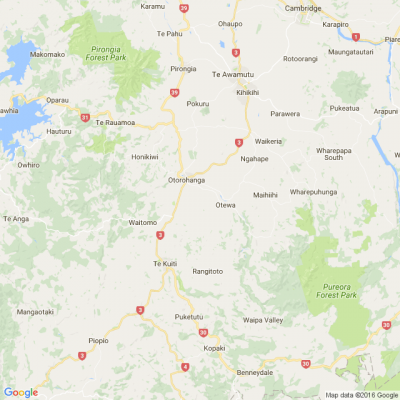
Know what’s happening
Access the private noticeboard for verified neighbours near you. Keep informed about any suspicious activity, send urgent updates to your neighbours when required and discuss emergency planning.
Get to know your neighbours
Browse the directory and start getting to know your neighbours. Don’t want to post to the whole neighbourhood? Send a private message.
Buy, sell and give away
Want to declutter your garage? Buy some used household items? Give away some garden stuff? Become a verified neighbour to browse and post items for sale. Trading is simple when everyone lives nearby.

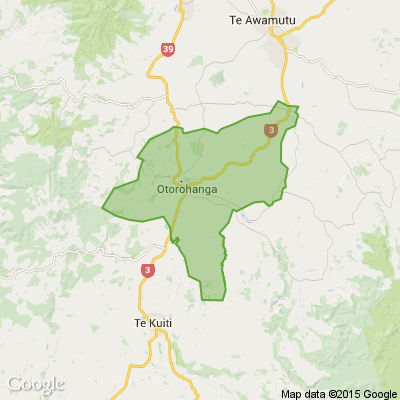
Lost something?
Found something? Let's reunite! Share about it here.

Thank you for using Neighbourly
You may receive an email confirmation for any offer you selected. The associated companies will contact you directly to activate your requests.
The Team from NZ Compare
Business is tough and finding the right broadband plan or provider can be just as rough, so let's make it a little easier.
We want you to focus on achieving your strategy, not going from site to site, call to call to get a good deal! So we've launched Business Compare - a simple, free … View moreBusiness is tough and finding the right broadband plan or provider can be just as rough, so let's make it a little easier.
We want you to focus on achieving your strategy, not going from site to site, call to call to get a good deal! So we've launched Business Compare - a simple, free to use website that will help you compare NZ broadband retailers that supply businesses just like yours!
NZ Compare is here to help Kiwi businesses find the right plan, the right provider, the right fit. Go visit Business Compare now!

Does your teen disengage at school?
At Vision College we offer our free 'Ultimate' programme, designed for 16-19 year olds who haven’t enjoyed school and are looking to gain skills and insight towards a pathway for their future.
Students gain valuable life and employment skills … View moreDoes your teen disengage at school?
At Vision College we offer our free 'Ultimate' programme, designed for 16-19 year olds who haven’t enjoyed school and are looking to gain skills and insight towards a pathway for their future.
Students gain valuable life and employment skills that prepare them for life outside of study, all while achieving the NZ Certificate in Foundation Skills Level 1 and 2, both NZQA qualifications, in just one year.
Find out more
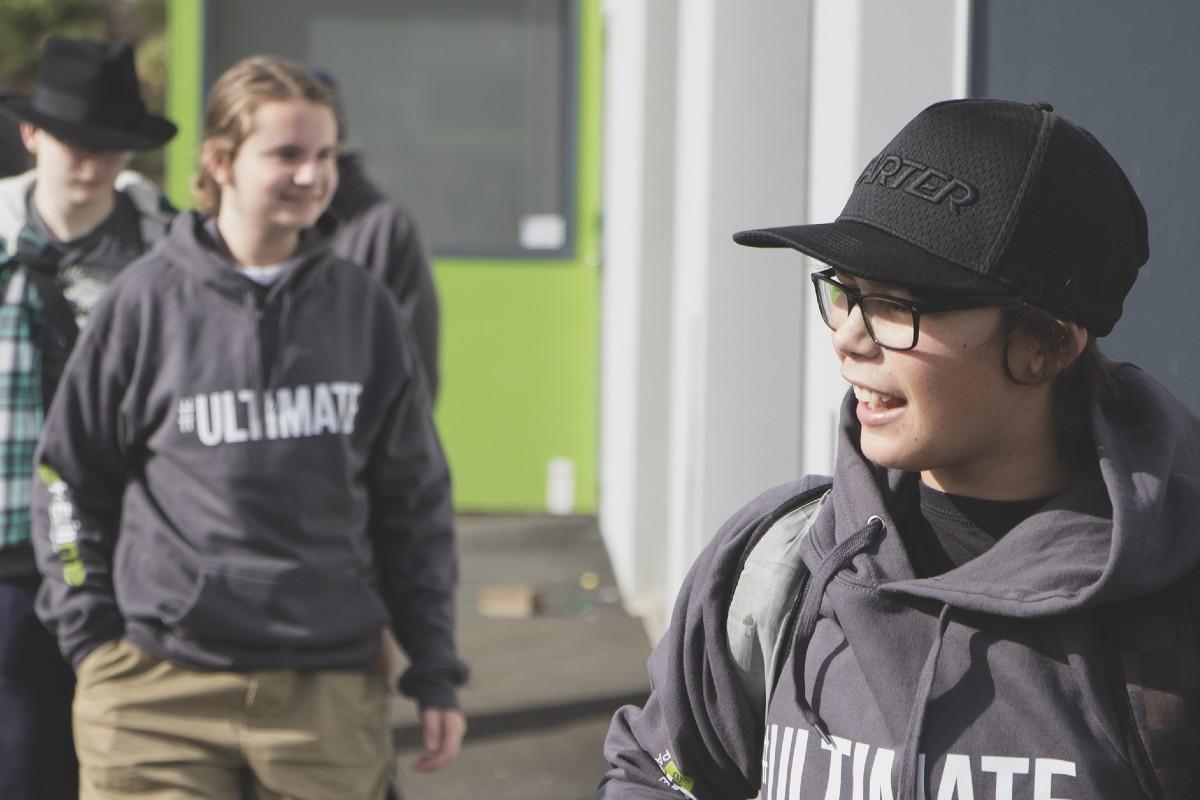
There’s always something to do, see, eat, drink and love when you visit Hamilton’s city centre.
Enjoy a meal at one of our city centres outstanding eateries, book a guided bike tour, watch an outdoor movie in Garden Place or come along to a Super Saturday of music and arts events on Saturday… View moreThere’s always something to do, see, eat, drink and love when you visit Hamilton’s city centre.
Enjoy a meal at one of our city centres outstanding eateries, book a guided bike tour, watch an outdoor movie in Garden Place or come along to a Super Saturday of music and arts events on Saturday 21st May at Garden Place and Victoria on the River.
Know more

The Team from Resene ColorShop Te Awamutu
This modern, stylish planter finished in Resene is a great option to show off a statement plant. Find out how to create your own.
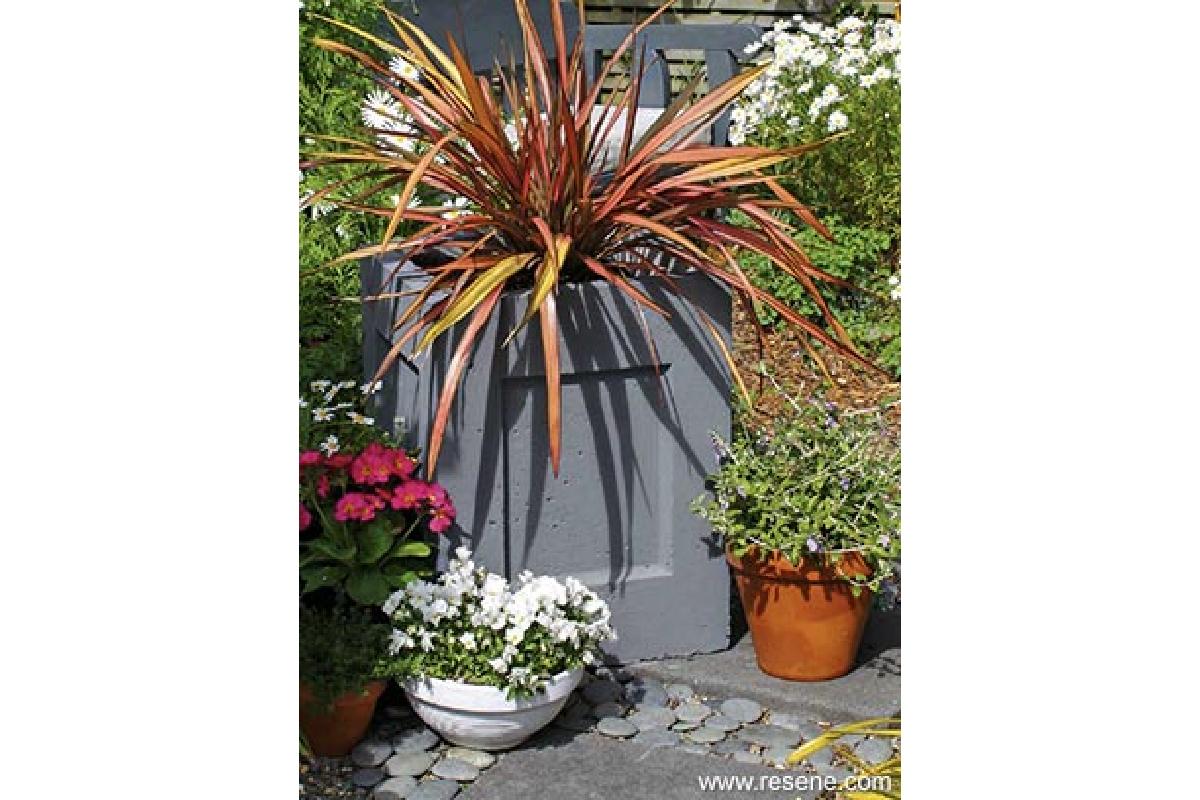
The Team from Neighbourly.co.nz
We are incredibly proud to launch Short Notice is a new initiative designed to connect neighbours with a little spare time on their hands with local businesses that need a bit of extra help!
It's very simple; using the new Short Notice community hub, share a little about yourself, your … View moreWe are incredibly proud to launch Short Notice is a new initiative designed to connect neighbours with a little spare time on their hands with local businesses that need a bit of extra help!
It's very simple; using the new Short Notice community hub, share a little about yourself, your availability and how you'd like to help.
If you're a business owner sign up for a FREE Premium Business listing to get access to Short Notice and let your community know what help you need.
Together, let's help keep small businesses busy!
Explore Short Notice

How’s it going neighbours, the friendly team here at NZ Beds wanted to remind you that we have some mum-believable deals to celebrate this Mother’s Day. Thank your mum and gift her an unforgettable serene sleep because she deserves it. From a luxury mattress to ultra luxurious bedding gift her … View moreHow’s it going neighbours, the friendly team here at NZ Beds wanted to remind you that we have some mum-believable deals to celebrate this Mother’s Day. Thank your mum and gift her an unforgettable serene sleep because she deserves it. From a luxury mattress to ultra luxurious bedding gift her the experience she will never forget.
Pop into your nearest NZ Beds store to browse our range. Find your nearest store with our store locator.
NZ Beds Team look forward to help you in getting a good night sleep.
Find us

Grab yourself a delicious Barista Made Coffee for only $4 at McCafé.
McCafé, simply good coffee.
Available for a limited time.
Find out more

Ingrid from Owhata
If you are looking for your first home, an Airbnb (which this gorgeous home was originally set up for), or an affordable rental property… This unit is a must-see!
ENQUIRIES OVER $600,000
This charming, spacious, FULLY FURNISHED AND FULLY-EQUIPPED 2 double bedroom, 2 toilet, central … View moreIf you are looking for your first home, an Airbnb (which this gorgeous home was originally set up for), or an affordable rental property… This unit is a must-see!
ENQUIRIES OVER $600,000
This charming, spacious, FULLY FURNISHED AND FULLY-EQUIPPED 2 double bedroom, 2 toilet, central city unit, is elegantly furnished with solid wood furniture, plush carpet, and colourful décor throughout.
This sunny home also boasts a fully insulated garage, which can be set-up for a comfortable large 3rd, fully carpeted bedroom, or 2nd lounge, you decide.
Enjoy the luxury of your own 2-person Spa in its’ own private room, with extra toilet to accommodate...Relax in the private, fully fenced, covered BBQ/courtyard area – perfect for many hours of outdoor entertaining with your canine companion and/or family.
This gorgeous home has a generous sized lounge and dining room area, a generous sized modern bathroom, 2 separate toilets, all mod cons including 4 TV's, a heat pump/air conditioning, a full kitchen with dishwasher, fridge/freezer, oven, microwave, coffee maker, a separate laundry which includes a near new front-loading washing machine, dryer, and much, much more.
It has loads of utensils, cookware, glassware, saucepans, fry-pans etc - Everything you could possibly want or need to cook up a feast, or for your impressed Airbnb guests…
A lovely garden with a lemon tree, off-street 2 car parking, and a gate on the road frontage complete this central city gem. However, being so close to the city, and with petrol prices being so high, no car is needed!
This fabulous unit is in an idyllic location as it is only a stone’s throw from Rotorua Central Shopping Centre which includes Countdown Supermarket, The Warehouse etc; all at your fingertips…With the local Medical Centre and Pharmacy being right next door!
Just a short stroll to Eat Street, which has an amazing array of fabulous cafes, restaurants, and bars; and the Thursday Night Market. This beautiful home is extremely close to the Hot Spot for night entertainment, Kirau Park, K-Mart, Spotlight, and of course the many other wonderful stores of Rotorua.
There is also a very convenient bus stop just a few steps away.
Now fetching a rental income of at least $550-$600pw (fully furnished), this unit offers a great return, in a location that is desired by many.
Zoned for Rotorua Intermediate and Boys’ High Schools, as well as Early Childhood Centres (eg Playtopia)
So what are you waiting for…it’s the perfect spot to simplify your life – Please call Ingrid for more details, viewings (please wear a mask), on 027 611 8699
Negotiable
Robert Anderson from Curtain Clean at Whakatane ChemDry
Here are some simple ways to be warmer this winter.
Keeping your home cosy need not break the bank. Here are our top 10 frugal tips for keeping warm this winter:
1. Wonder where all your heat’s going? Light a candle and trace around your window edges, doors and vents – but make sure your … View moreHere are some simple ways to be warmer this winter.
Keeping your home cosy need not break the bank. Here are our top 10 frugal tips for keeping warm this winter:
1. Wonder where all your heat’s going? Light a candle and trace around your window edges, doors and vents – but make sure your curtains are out of the way. When the smoke starts going sideways you’ve found a draught. Window sealant tape is a cheap way to keep in the heat.
2. Don’t neglect the timer on your heat pump. Set it to come on at about 20 degrees an hour before you come home. You’ll make considerable savings compared to blasting it at 23 degrees all evening.
3. If your electric heater lacks a timer, you can buy a plug-in timer from as little as $10 from most hardware stores – they look like power adapters but have a digital interface allowing you to set appliances to come on up to seven days in advance.
4. Ensure your curtains and blinds fit snugly against the window frame. We’ve found this is more important than the material they’re made from. Floor-length curtains are better than sill-length curtains, which aren’t much better than no curtains at all.
5. Our testing found fan-less heaters (like oil-column models) often result in uneven, layered heat distribution. To avoid cold feet and a hot head, place a small desktop fan on the ground beside the heater. We found it helped an oil-column heater warm a room 3 times as fast.
6. Double-glazing doesn’t need to cost the earth. In fact, you can pick up DIY window insulator kits for under $15 per frame. All you need to do is cut the film to size and use a hair dryer to shrink it onto the window.
7. If you’re not worried about aesthetics, there’s an even cheaper way to stop heat escaping through your windows. Bubble wrap is a great temporary option, especially on internal windows in seldom-used areas. Secure it to the pane using Blu-Tack or double-sided tape, and make sure it sits flush against the frame.
8. Cat flaps are a major source of draughts. To improve the seal around the frame, unscrew the whole assembly, clean the area where it’s in contact with the door, then screw it back in tightly. Then add a thin line of silicone sealant around the frame. If draughts persist, stick some light rubber insulation tape on both sides of the flap.
9. A rug is a great way to add another layer of insulation, especially if you’ve got wooden or concrete floors. Putting down a thick rug in living areas will help prevent heat loss through the floor, especially if there’s no underfloor insulation.
10. Use pot lids when cooking. This can reduce the amount of moisture released into the air by three litres per day.
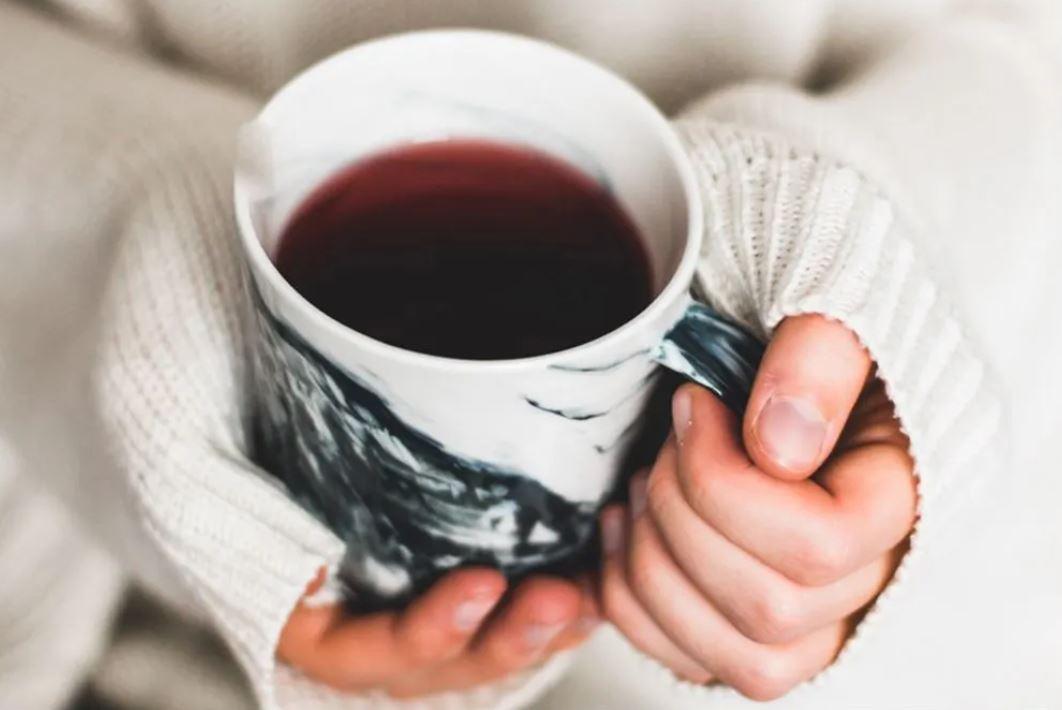
Congratulations to Robert Fenwick, owner of Fenwicks Pharmacy in Canterbury, the 2022 Prospa Local Business Hero.
Robert has been recognised for his ongoing service and support for the community through tough times. Fenwicks pharmacy remained open throughout the lockdown with friendly greetings,… View moreCongratulations to Robert Fenwick, owner of Fenwicks Pharmacy in Canterbury, the 2022 Prospa Local Business Hero.
Robert has been recognised for his ongoing service and support for the community through tough times. Fenwicks pharmacy remained open throughout the lockdown with friendly greetings, conversations and smiles!
Congratulations to all the finalists and thank you for nominating your favourite local business. We'd like to acknowledge the official winner of the public voting poll, Josh Coe, owner of Page 42 cafe. Unfortunately, Josh has decided to close his business after 3.5 years and we wish him all the best.

The Team from Resene ColorShop Te Awamutu
Turn scrap building materials into a fun and practical piece for the home. Use timber offcuts and some creativity to make a rustic house number sign with Resene Alabaster and Resene Woodsman Crowshead.
Find out how to create your own.
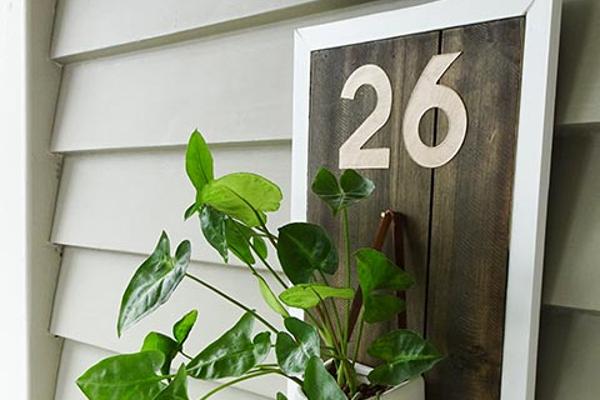
The Team from NZ Compare
The weather is getting chilly, ya power is going to rise! So why are you sticking with the same plan and provider if it might be costing you MORE money?!
53.9% of Neighbours said they switched over 6 months ago and 33.6% said you have no idea when you last switched! We want to know why … View moreThe weather is getting chilly, ya power is going to rise! So why are you sticking with the same plan and provider if it might be costing you MORE money?!
53.9% of Neighbours said they switched over 6 months ago and 33.6% said you have no idea when you last switched! We want to know why you're not switching power providers?

Ashleigh from The Neighbourly Team
Our winning Nice Neighbours have been featured across NZ in the local papers, maybe you've spotted these smiling faces...
If you have a nice neighbour who needs recognised for the little (or big!) things they do, nominate them on our Nice Neighbour page and you could each get a $25 Prezzy® … View moreOur winning Nice Neighbours have been featured across NZ in the local papers, maybe you've spotted these smiling faces...
If you have a nice neighbour who needs recognised for the little (or big!) things they do, nominate them on our Nice Neighbour page and you could each get a $25 Prezzy® card - that sounds like morning tea to me!
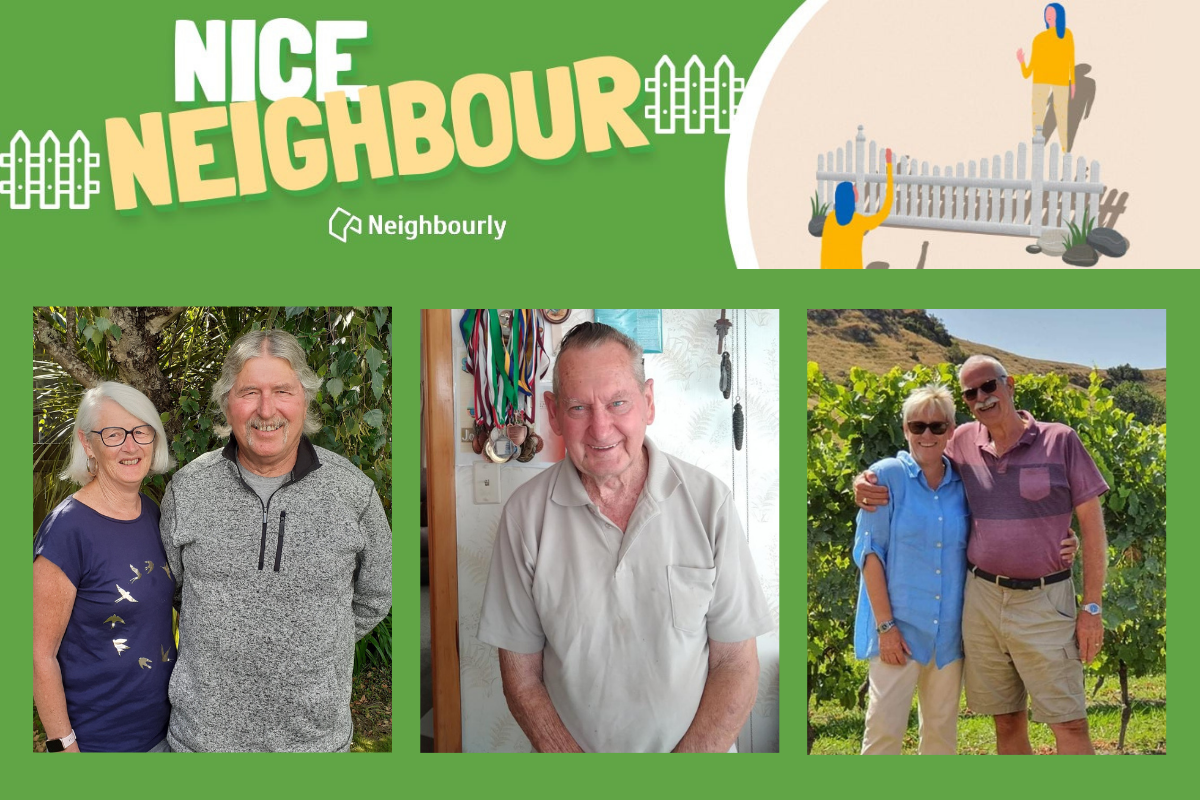
Hi neighbours,
It's time to sow your seeds and cut those flowers because NZ Gardener's new special edition is on-sale now!
The NZ Gardener team takes you through the seasons with advice on cutting fresh flowers 365 days of the year. Flick through the pages and find stunning … View moreHi neighbours,
It's time to sow your seeds and cut those flowers because NZ Gardener's new special edition is on-sale now!
The NZ Gardener team takes you through the seasons with advice on cutting fresh flowers 365 days of the year. Flick through the pages and find stunning photographs, step-by-step instructions on how to arrange bouquets and what to plant and when.
Get your copy where any good magazines are sold or buy online at Mags4Gifts.co.nz
BUY NOW

Ingrid from Owhata
If you are looking for your first home, an Airbnb (which this gorgeous home was originally set up for), or an affordable rental property… This unit is a must-see!
ENQUIRIES OVER $600,000
This charming, spacious, FULLY FURNISHED AND FULLY-EQUIPPED 2 double bedroom, 2 toilet, central city … View moreIf you are looking for your first home, an Airbnb (which this gorgeous home was originally set up for), or an affordable rental property… This unit is a must-see!
ENQUIRIES OVER $600,000
This charming, spacious, FULLY FURNISHED AND FULLY-EQUIPPED 2 double bedroom, 2 toilet, central city unit, is elegantly furnished with solid wood furniture, plush carpet, and colourful décor throughout.
This sunny home also boasts a fully insulated garage, which can be set-up for a comfortable large 3rd, fully carpeted bedroom, or 2nd lounge, you decide.
Enjoy the luxury of your own 2-person Spa in its’ own private room, with extra toilet to accommodate...Relax in the private, fully fenced, covered BBQ/courtyard area – perfect for many hours of outdoor entertaining with your canine companion and/or family.
This gorgeous home has a generous sized lounge and dining room area, a generous sized modern bathroom, 2 separate toilets, all mod cons including 4 TV's, a heat pump/air conditioning, a full kitchen with dishwasher, fridge/freezer, oven, microwave, coffee maker, a separate laundry which includes a near new front-loading washing machine, dryer, and much, much more.
It has loads of utensils, cookware, glassware, saucepans, fry-pans etc - Everything you could possibly want or need to cook up a feast, or for your impressed Airbnb guests…
A lovely garden with a lemon tree, off-street 2 car parking, and a gate on the road frontage complete this central city gem. However, being so close to the city, and with petrol prices being so high, no car is needed!
This fabulous unit is in an idyllic location as it is only a stone’s throw from Rotorua Central Shopping Centre which includes Countdown Supermarket, The Warehouse etc; all at your fingertips…With the local Medical Centre and Pharmacy being right next door!
Just a short stroll to Eat Street, which has an amazing array of fabulous cafes, restaurants, and bars; and the Thursday Night Market. This beautiful home is extremely close to the Hot Spot for night entertainment, Kirau Park, K-Mart, Spotlight, and of course the many other wonderful stores of Rotorua.
There is also a very convenient bus stop just a few steps away.
Now fetching a rental income of at least $550-$600pw (fully furnished), this unit offers a great return, in a location that is desired by many.
Zoned for Rotorua Intermediate and Boys’ High Schools, as well as Early Childhood Centres (eg Playtopia)
So what are you waiting for…it’s the perfect spot to simplify your life – Please call Ingrid for more details, viewings (please wear a mask), on 027 611 8699
Negotiable
 Loading…
Loading…
Are you sure? Deleting this message permanently removes it from the Neighbourly website.
 Loading…
Loading…
© Neighbourly 2026
